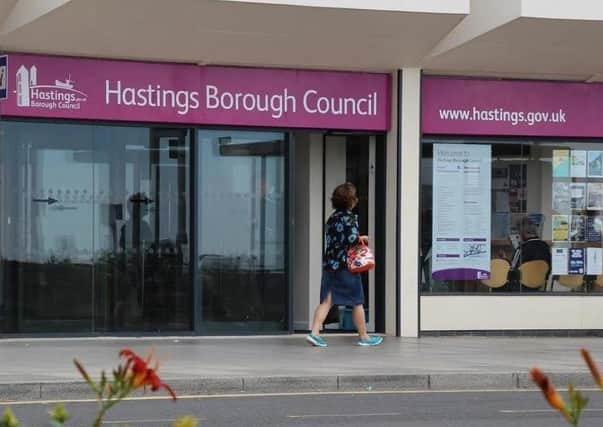Hastings councillors agree to emergency decision-making powers


At a special full council meeting on Wednesday (March 18), elected members agreed to delegate decision-making authority to the authority’s newly-appointed managing director on urgent matters in ‘emergency situations’ when members cannot meet to determine the council’s business,
Such decisions would have to be made in consultation with at least four elected cabinet members – one of whom would have to be an opposition councillor – and largely confined to “essential decision-making”, councillors heard.
Advertisement
Hide AdAdvertisement
Hide AdManaging director Jane Hartnell – who was officially appointed earlier in the same evening – said the changes would allow the council to continue operating in the face of the coronavirus pandemic.
She said: “I am very conscious that the approach we need to take is to delay decisions wherever possible. I really don’t want to be using these powers unless absolutely necessary, that is the only reassurance I can give people.
“But also, we need to make sure the council doesn’t grind to a halt and can’t make the decision it needs to, because we will be out of this situation at some point.”
While agreed unanimously, several councillors expressed some concerns about how the powers would work in practice.
Advertisement
Hide AdAdvertisement
Hide AdThey included Conservative group leader Rob Lee, meanwhile, raised concerns about the “democratic deficit” for residents as non-cabinet councillors would have less input into decision-making.
Cllr Leah Levane (Lab, Castle), meanwhile, tabled an additional paragraph to the proposed changes, which sought to define more strictly what counted as an emergency situation.
Other councillors also expressed disquiet about how the changes would operate.
Old Town councillor Dany Louise (Ind) said: “I have a question about process and I think it is also about checks and balances
Advertisement
Hide AdAdvertisement
Hide Ad“Obviously it is important the council is able to keep working and keep functioning, but there still needs to be the usual checks and balances and transparency within that.
“In particular I’ve been asked about how, for example, full councils such as this might work if they weren’t physically taking place.
“If they did become virtual meetings what provisions would there be for the public to be able to view and ask questions?”
In response, Ms Hartnell said the council was waiting for further information from the government on this matter but the change in constitution was intended to be a “fallback position” should urgent decisions need to be taken before then.
Advertisement
Hide AdAdvertisement
Hide AdShe said: “The difficulty is the law at the moment says you can’t have virtual meetings and there is actually a blanket ban on that.
“Whatever rules [Government] put in place, we will need to respond to them and actually be clear we can facilitate them.
“ I think there are two things in that, the first is a technological one which knowing how we are as an organisation may not be too difficult. But the second one is about whether we have enough staff to facilitate those [meetings] at any one time.
“That is why I think we need to have that fallback position of the recommendation you have this evening. It is really not clear to me at the moment how we could do some of those things, so I think that is where the government will come in.”
Advertisement
Hide AdAdvertisement
Hide AdMs Hartnell said the situation would be more complicated for the council’s licensing and planning committees, as members of the public have the right to speak at these meetings. Government guidance is expected on this point, she added.
While no planned meetings have yet been officially cancelled, council sources say the scheduled meetings are now unlikely to go ahead.